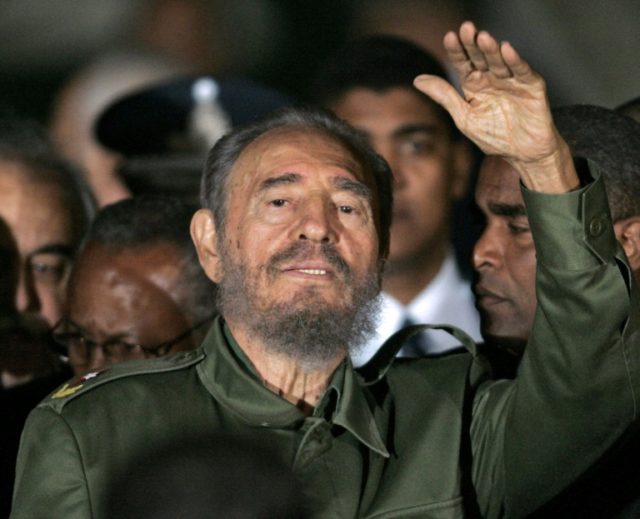ESPN marked the passing of Cuban dictator Fidel Castro by acclaiming the huge impact that the Caribbean strong man had on the world of sports in a piece titled “Fidel Castro, 90, Deftly Fused Sports into Cuba’s National Identity.”
ESPN recited the important role sports played in Castro’s personal life. “Born near Birán, Cuba, on Aug. 13, 1926, to a sugar plantation owner, Castro grew up in a wealthy household and attended El Colegio de Belén in Havana, where he pitched for the school’s baseball team, played basketball and ran track,” ESPN noted. “After graduation, he turned his attention to politics. Castro became one of the leaders of a revolutionary movement, and in 1958 he and his guerrilla forces began a campaign to successfully overthrow Cuban dictator Fulgencio Batista.”
After becoming dictator, the article tells how sports became yet another arena for Castro to challenge America. “As Castro’s rivalry with the U.S. played out in diplomatic and military crises, it also played out on baseball fields, in boxing rings and on rubberized tracks,” the site maintains. “Soon after coming to power, Castro recognized the potential benefits of national excellence in athletics and Cuba eventually became one of the strongest sporting nations in the world — despite a population only slightly greater than New York City’s.”
ESPN described how Castro used international exposure to spread Cuba’s sports brand:
At the Olympics, Castro’s athletes were at their best. Cuba won no gold medals at any Games from 1906 to 1968, but all of that changed beginning in 1972. In Munich, then in Montreal and then in Moscow — Games the United States boycotted — Cuba was an Olympic force. Heavyweight boxer Teofilo Stevenson won three consecutive gold medals and Alberto Juantorena became the first man to win both the 400- and 800-meter races.
Cuban sport was back in the international spotlight in 1991 as the nation hosted the Pan-Am Games, which, more than any athlete, Castro dominated. He seemed to be at every venue, cheering every heat and every Cuban athlete.
The following year, Cuba returned to the Olympic fold just in time to win the first Olympic baseball championship, defeating the U.S. and delighting Castro. Soon thereafter, many of its top players started defecting to the United States, where, instead of earning the equivalent of a thousand dollars a year, they could sign contracts worth millions of dollars.
Another reason Castro would “dominate,” and “be at every venue,” was to ensure that none of his athletes tried to escape by borrowing the uniform of some visiting country and seeking asylum like dozens and dozens of Cuban athletes have done over the years.
The great paradox of ESPN’s praise of Castro’s commitment to athleticism and praise of his athletes is that because, in a word, they’re right. Castro did commit huge resources to the recruiting, training, and coaching of athletes. National and international Cuban athletes did indeed enjoy a higher standard of life than the average citizen in Castro’s Cuba.
And yet, according to The Guardian, despite Castro’s best efforts to ensure the wealth and success of his athletes the best baseball players in Cuba only earn $50 dollars a month and the best baseball teams in the country run constant shortages of bats, balls, and gloves.
Yulieski Gourriel, a current Houston Astro, was widely considered the best player in Cuba and the son a of a famous Cuban national team player. The Guardian reports that in a bid to keep Gourriel in Cuba, the country raised his salary 26 times above its normal amount, equaling just over $871 U.S. dollars per month. Gourriel currently has a contract worth more than $47 million dollars with the Astros.
ESPN’s lauding of Castro’s jock propaganda only serves to obscure the greater, darker truth that Castro held down those he promised to help the most. If the best most valuable athlete in Cuba’s most popular sport can’t earn a thousand dollars a month in Castro’s Cuba then what chance did any Cuban citizen under Castro ever have?
They never had one, that’s the real story that ESPN refuses to tell.
Follow Dylan Gwinn on Twitter: @themightygwinn

COMMENTS
Please let us know if you're having issues with commenting.